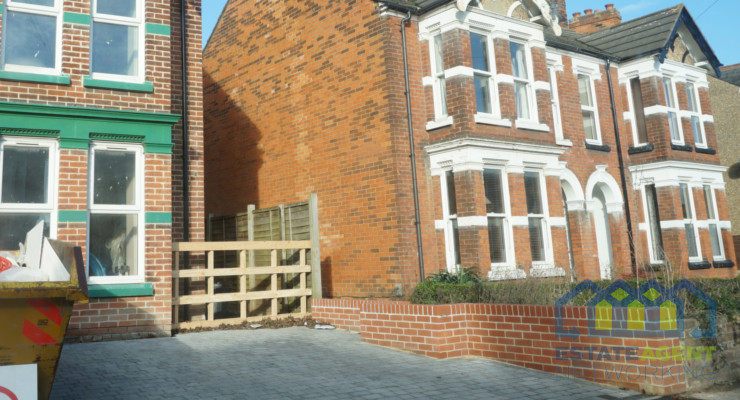Real Estate Rental Business. How to Build Safe Platform
There’s a lot of profit in managing rental facilities, as long as the essentials are in place. These days that means building out credible platforms to assist the enterprise. Modern cloud portals are a robust solution because they allow customers and businesses to manage all their rental transactions seamlessly.
Security Considerations for a Platform
A platform for handling transactions and sensitive customer information requires security. All websites and apps are targets for hackers. Safeguarding data against all attacks is crucial. If you plan on rolling out a new system, you’ll want to pay close attention to essential security issues:
1. SSL helps protect entered data from prying eyes.
2. Strong password enforcement stops people from creating accounts without enough security.
3. Sane data policies help prevent catastrophes that disrupt business. Realize just how critical hosting data is before you begin your launch and create policies that protect your users. The time to implement the proper choice is at the beginning. It becomes substantially harder once you’re in production and many people are counting on system reliability.
Don’t Neglect Mobile Usability
Desktop internet usage is not dead, but it’s not growing. If you want to make your platform accessible to the broadest possible audience, focus on mobile usability. Your renters will want to be able to check account status and make payments from their phones. Make it convenient for them, and they’ll reward you with on-time pay.
To build a high-quality real estate CRM requires a robust architecture. You may consider taking on the project internally, depending on your company’s core competencies. However, some companies specialize in creating and maintaining real estate website platforms. It may end up being more practical to have a real estate development agency put together your portal. They have experience in the field and will be able to overcome challenges in a reasonable time frame.
If you know how to build a real estate platform, doing so in-house will have certain benefits. However, maintaining website platforms management software is not a job to underestimate. It takes a great deal of effort to stay on top of updates to ensure smooth operations. As your business grows, you’ll want to be able to integrate new customers with no downtime easily. Once you’re in production, you’ll need to maintain the integrity of your accounting and data management. If your team is up to the task, you may decide to go it by yourself.
It’s worth plotting out the features that are most important to your organization. Even if you purchase off-the-shelf software, it can only be effective if it meets corporate needs. That’s why your staff should provide you with as much feedback as possible. The key to happiness for customers and your organization is usability. If you decide to build your platform it comes with one significant advantage: the system will have the functionality you need most.
Exploit a Growth Industry
There has been explosive growth in the rental platform industry, and it’s because of several trends. Pushing forward development is an influx of capital from venture capitalists who are looking to transform the CRE industry. They’re founding marketplaces (including crowdsourcing platforms) to help modernize the sector. More people now than ever are savvy about using cloud-based services to make their lives easier. They’re extremely likely to want to handle their business digitally due to the convenience.
The result of so much money coming into the rental industry is that the platforms now command a large share of the market. How scalable are platforms for real estate? Greystar Real Estate Partners is currently actively managing 415,000 rental units using their digital assets. Rental platforms are a magnet for investors, primarily because they make managing properties so much easier. The presence of a large, global provider like this illustrates that building rental platforms has the potential to be a substantial enterprise.
Even cryptocurrency projects are getting in on the act, by creating blockchain platforms for real
estate. The amount of innovation in the last few years is helping the CRE industry catch up quickly to alternatives. Even though the broader stock market is turning negative, investors continue to pour capital into real estate tech darlings like Compass. Compass recently received $400,000,000 in funding to help build out their platform. Although Compass focuses on real estate sales instead of rentals, the concepts that are helping them grow revenues applies to apartments as well.
With the number of renters expected to rise sharply in the next five years, it’s a great time to build out a platform. Technology is currently at a crossroads, so it’s crucial to make the types of choices that will sustain moving forward. It may be worth checking out new “Serverless” implementations for “DevOps” which can help reduce the need for complicated management. One thing seems inevitable, building a platform requires investing in the proper infrastructure and keeping things flexible.
In the next few years, more mainstream apps will enter the renter’s market. Two startups, Oliver and Rezi, are expected to rise fast as people begin to understand the benefits of using their services to find their next apartment. It’s a perfect time for other startups, business owners, and entrepreneurs to follow suit and build their platforms. Users are conditioned to expect apps to save time, no matter what they’re doing.
Mainstream apps will continue to gain popularity. This fact is excellent news for those who plan on offering platforms. Build out specific, functional apps and services, and you’ll discover a ready market for your services. This approach may be useful for companies who want to create platforms for current customers only, or for those startups who go after a larger piece of the pie. Well-funded ventures are looking to transform the real estate industry globally, and there’s still time to claim your share.
Renters Will Appreciate Robust Features
If your platform helps renters save time, they’ll use it. That’s why features like virtual tours and online booking are necessities. Give the potential customer as much information as possible to help them make an accurate decision. Most people feel pressed for time, so having to fumble around looking for answers is never appreciated. Virtual reality tours are one of the fastest ways to stand out from the crowd to attract new renters. Busy people would much rather take a “walk through” from their phone or computer instead of travelling in to see it in person. That saves time for the agents and renters in the long run.
There’s little doubt that building a platform for rental is going to be a key driver of growth in the coming years. Apartment hunters are not likely to regress in their desire for efficient rental searching. They’re looking to enter into a deal with their eyes wide open, and they expect a high degree of reliability from digital services. Those who provide a top experience stand to gain a significant market share in a short period.
Current trends seem likely to continue, and many unhappy renters will seek alternatives when it comes time to move. They’ll likely search app stores and web search engines to help them find a dream place.







